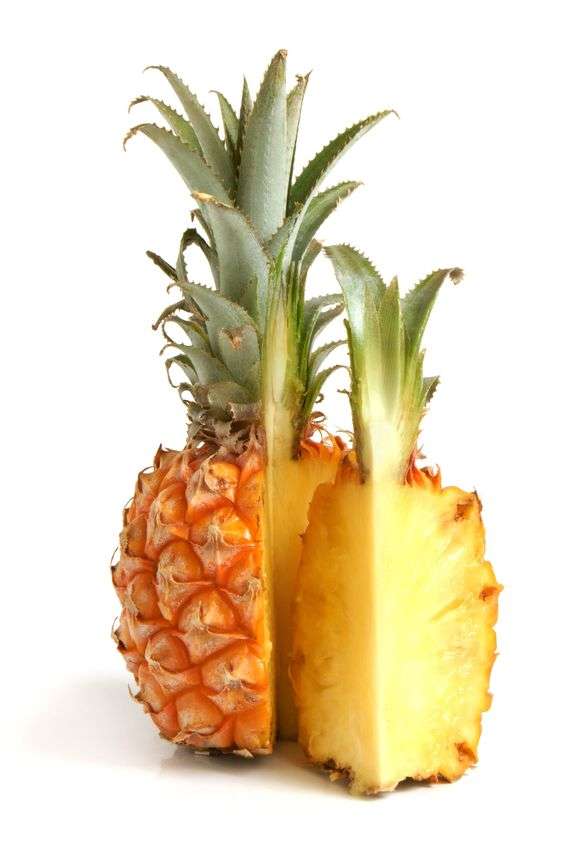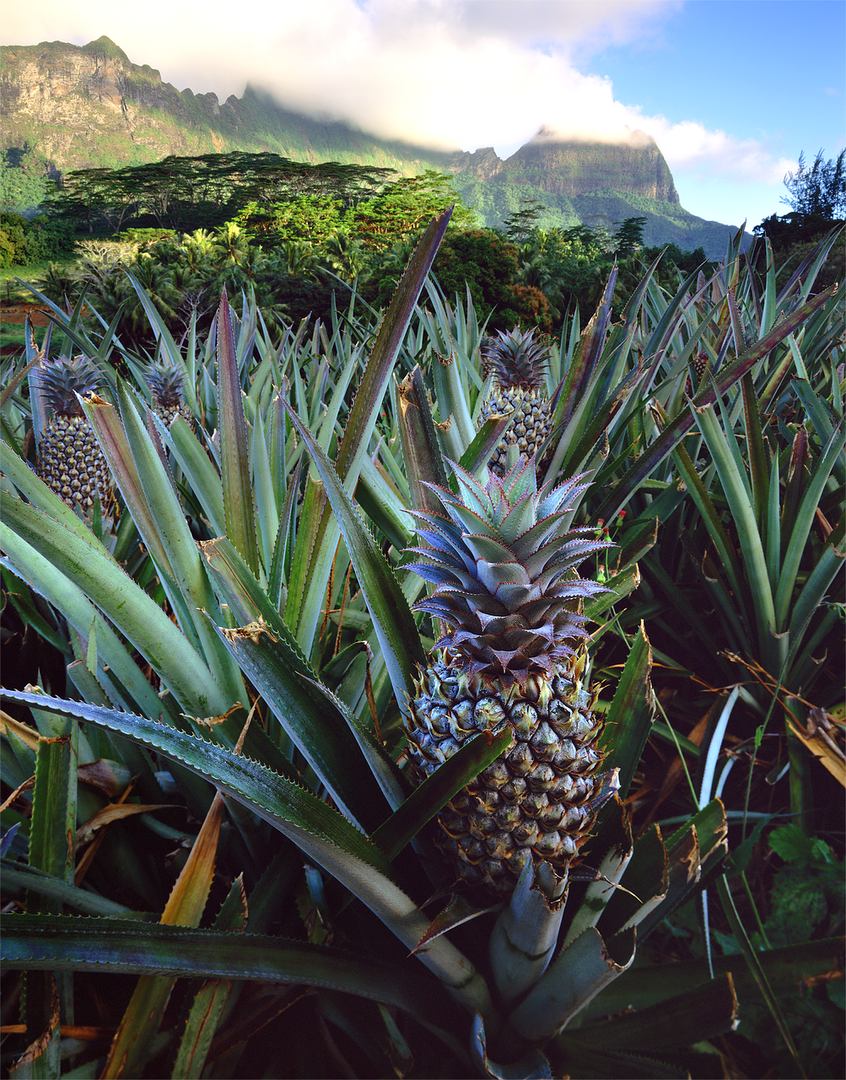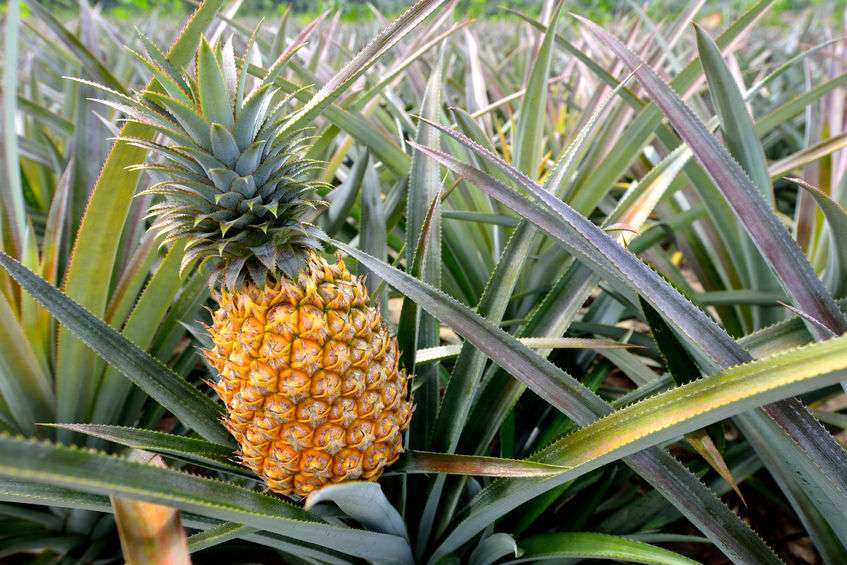
Did you know that pineapples just might contain secret healing powers?
The pineapple, unlike Saw Palmetto which has leaves like a saw and fruit you really do not want to eat, has sharp leaves and thick skin that belie all the goodness inside. Sweet delicious flesh, a core that you can juice or put in your smoothies, and bromelain, a mixture of enzymes found naturally in the juice and stems. So yummy and it has medicinal properties! And we’ve got a winner!
Pineapple is the common name of Ananas comosus (Ananas sativus, Ananassa sativa, Bromelia ananas, Bromelia comosa). It's noted that, when European explorers encountered the tropical fruit in the Americas, they called them "pineapples" for their resemblance to pine cones.

Pineapples are grown in several tropical and subtropical countries
Pineapple is the leading edible member of the family Bromeliaceae, grown in several tropical and subtropical countries including Philippines, Thailand, Indonesia, Malaysia, Kenya, India, and China. Large-scale pineapple cultivation in Hawaii began in the early 1900s. Cannery operations in Hawaii flourished through the early 21st Century. Now a very small percentage of the world’s production is grown in Hawaii
So, what's the secret ingredient?
It's bromelain! Bromelain is a group of enzymes found in pineapple juice and in the pineapple stem. Pineapples have long been used as a medicinal plant among the natives of South and Central America. It has a centuries-long history of being used to treat medical ailments, primarily throughout Central and South America.
The first isolation of bromelain was recorded in 1891. Bromelain is present in all parts of the pineapple plant but the stem has the highest concentration. The bromelain is extracted from the peel, stem, leaves or waste of the pineapple plant after processing the fruit for juice or other purposes.
Used widely as a natural remedy:
to treat everything from indigestion to allergies, pineapple is filled with this enzyme. It also has its share of vitamin C, vitamin B1, potassium, manganese and phytonutrients.
Bromelain is thought to stimulate the body’s natural ability to relieve inflammation and chronic pain. It’s also said to stimulate digestion and improve heart health. Even though it’s extracted from pineapple, eating pineapple or drinking its juice doesn’t supply a large enough dose to be effective.
Bromelain has long been used as a potent anti-inflammatory and anti-swelling agent. It’s also considered to be an anti-histamine and a diuretic; and may help prevent blood clots, edema and swelling. It has been used to improve the appearance of skin after a burn, and to help burn fat during weight loss.

Pineapple on pizza is very controversial. There’s the “I love it on pizza camp” and the “Never, no way, are you kidding me camp." Here’s an interesting twist from our friends at Cooking Light Magazine; use the pineapple as the base of the pizza in this recipe!
Interesting fact: As a culinary ingredient, it can be used as a meat tenderizer. Along with papain (found in papaya), bromelain is one of the most popular proteases to use for meat tenderizing. Bromelain is sold in a powdered form, which is combined with a marinade, or directly sprinkled on uncooked meat.
Bromelain may be used as a treatment for the following health benefits:
• Allergies
• Angina
• Asthma
• Bronchitis
• Chronic Pain
• Digestive Issues
• Muscle Soreness
• Nasal Swelling
• Osteoarthritis
• Sinusitis
• Faster healing of skin wounds and burns
• Ulcerative Colitis.
Pineapples are sweet, delicious and full of hidden goodness!
If you'd like to check out some products that contain bromelain, please visit these links:
Bromelain 1400 by Dynamic Nutritional Associates
Di-Aide Enzymes by Professional Botanicals
Aprozyme by Dynamic Nutritional Associates
EZ/Flex by Dynamic Nutritional Associates
Lipo-Plex by Dynamic Nutritional Associates

_______________________________________________________________________________________________
Note: The content of this article, and additional content on this website, are for informational purposes only and are not intended to be a substitute for professional medical advice, diagnosis, or treatment. Always seek the advice of a physician or other qualified health provider with any questions you may have regarding a medical condition. Never disregard professional medical advice or delay in seeking help because of something you read here on this website.



